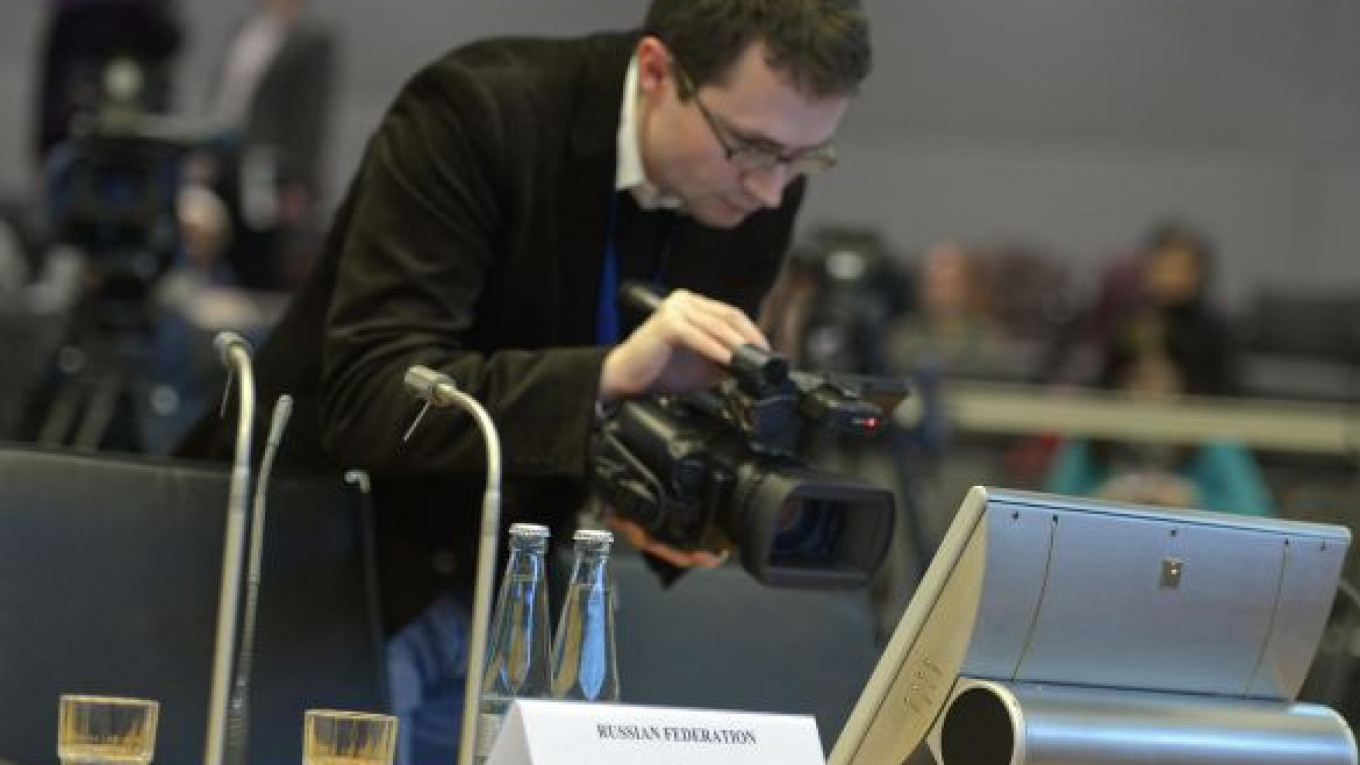The United Nations maritime tribunal on Friday ordered Russia to release a Greenpeace ship and 30 people arrested in a protest against Russian Arctic oil drilling, most of whom have just been released from detention on bail.
The International Tribunal for the Law of the Sea in Hamburg said it had accepted a request from the Netherlands to order the provisional release of the Dutch-registered Arctic Sunrise and its crew, which Russia detained Sept. 18 to international protest.
The Russian Foreign Ministry said it would study the ruling, but that the tribunal had no jurisdiction over its prosecution.
It said it hoped the decision had been "objective" and had taken into account what it said were violations of international law by the Greenpeace vessel.
"The Arctic Sunrise ship was used as a tool to commit acts that are unacceptable under international law and Russian legislation," the ministry said in a statement.
In Hamburg, Judge Shunji Yanai of Japan told the court the application from the Netherlands for a provisional release had been accepted by the votes of 19 judges to two. The court ruled that the ship and crew must be allowed to leave Russia, subject to the payment of a 3.6 million eurobond by the Netherlands.
Russian authorities have in the last few days ordered the release on bail of 29 of those arrested, although Greenpeace says it is unclear whether or not they will be allowed to leave Russia. Greenpeace lawyers said they now intended to focus efforts on helping the foreign citizens leave Russia. The 30th, Colin Russell of Australia, had his detention extended until Feb. 24.
The tribunal was set up to adjudicate maritime disputes under the UN Convention on the Law of the Sea, which both Russia and the Netherlands have ratified.
Western leaders including German Chancellor Angela Merkel have expressed concern to President Vladimir Putin. UN Secretary-General Ban Ki-moon appealed to Russia on Thursday to show leniency while Western celebrities including ex-Beatle Paul McCartney have asked for the detainees' release.
The court considered that international maritime conventions stipulate that governments may arrest ships in their exclusive economic zones only if they are engaged in nonpermitted fishing or research activities, tribunal judge RЯdiger Wolfrum told Reuters.
"This was not the case here," he said. "I think we have reached a provisional decision that secures the rights of both sides."
Wolfrum said the provisional order would have no impact on any future arbitration hearings in the dispute.
The 30 arrested over the protest, in which Greenpeace activists tried to scale the offshore oil rig Prirazlomnaya, part of Russia's drive to tap Arctic energy resources, could be jailed for up to seven years if convicted of hooliganism.
Greenpeace, which says the protest was peaceful and the charges are unfounded, has been voicing alarm over the rush to develop Arctic energy resources, which it says threatens the region's unique environment.
Greenpeace International executive director Kumi Naidoo said international law was an integral part of Russia's legal system and its courts were obliged to implement the order.
The 30 arrested had initially been charged with piracy, punishable in Russia by up to 15 years in prison. Putin then said they were clearly not pirates but had violated the law.
A Message from The Moscow Times:
Dear readers,
We are facing unprecedented challenges. Russia's Prosecutor General's Office has designated The Moscow Times as an "undesirable" organization, criminalizing our work and putting our staff at risk of prosecution. This follows our earlier unjust labeling as a "foreign agent."
These actions are direct attempts to silence independent journalism in Russia. The authorities claim our work "discredits the decisions of the Russian leadership." We see things differently: we strive to provide accurate, unbiased reporting on Russia.
We, the journalists of The Moscow Times, refuse to be silenced. But to continue our work, we need your help.
Your support, no matter how small, makes a world of difference. If you can, please support us monthly starting from just $2. It's quick to set up, and every contribution makes a significant impact.
By supporting The Moscow Times, you're defending open, independent journalism in the face of repression. Thank you for standing with us.
Remind me later.






